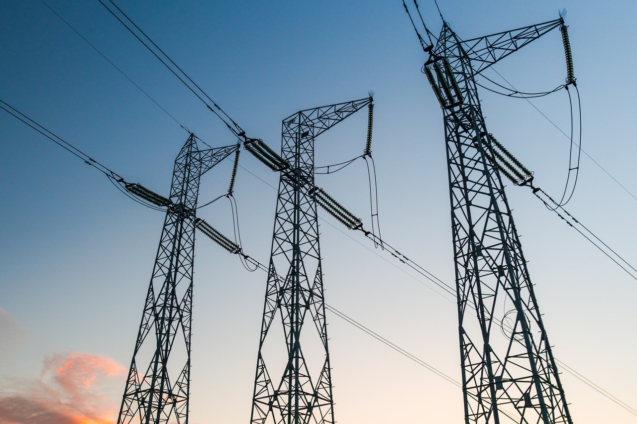The consistent rise in the country's energy sector debt has become a topical issue.
The projection is that the debt could surge to ₵7 billion by the close of the year.
As part of efforts to cut down the debt, government has terminated and renegotiated 'take or pay' contracts with some Independent Power Producers (IPPs).
Discussing the issue critically, energy analysts and relevant stakeholders in the sector who featured on JoyNews Newsfile on Saturday, highlighted some reasons why Ghana's energy sector debt is still on the rise.
Executive Director of the Institute for Energy Policies and Research (INSTEPR), Kwadwo Poku, speaking with host, Samson Lardy Anyenini, blamed the depreciation of the Ghana cedis for the rise in the sector's debt.
"Most of these debts are in dollars. So year-on-year, it is not that debt is accumulated but because the cedi to the dollar depreciates, the debt itself gets bigger. Then you have interest on these debts. The FX translation is a very big factor on the indebtedness."
He also blamed State Owned Enterprises for the consistent challenge. Mr. Poku explained that government is one of the biggest consumers in the sector, yet fails to pay for the energy it uses.
According to him, when the PDS agreement was to be signed, the government went to Parliament and ring-fenced certain sectors and certain Ministries that were not expected to use prepaid meters.
That included the Education, Health, Finance and Interior Ministries.
"For Interior, it includes all the barracks, police, military and for Education, it includes schools. For Health, it includes all the hospitals. These institutions don't pay their electricity bill. Government becomes the highest debtor. So the debt keeps occurring."
"Government needs to sit up, because he is the number one problem or cause of the problem," he stressed.
According to Co-founder & Executive Partner of Arthur Energy Advisors (AEA), Harriette Amissah-Arthur, theft has worsen the country's energy debt.
"There is excessive losses through theft and technical losses. If you compare how much we lose through theft and on a decision to procure capacity we do not need, if we rectify and take the right decision, it will then take away 2 billion and be left with 7 billion and put us in a better place to move forward."
The technical loss is basically dissipation of energy due to old machinery and just loss on the cables, Mr Poku explained.
To ensure the huge debt is cut down, Mr Poku has suggested that all Ministries, Departments and Agencies, barracks, schools and hospitals should be put on prepaid metres.
He argued that "these are money-making institutions, why can't they pay their bills?"
Latest Stories
-
I want to focus more on my education – Chidimma Adetshina quits pageantry
26 mins -
Priest replaced after Sabrina Carpenter shoots music video in his church
39 mins -
Duct-taped banana artwork sells for $6.2m in NYC
50 mins -
Arrest warrants issued for Netanyahu, Gallant and Hamas commander over alleged war crimes
53 mins -
Actors Jonathan Majors and Meagan Good are engaged
58 mins -
Expired rice saga: A ‘best before date’ can be extended – Food and Agriculture Engineer
1 hour -
Why I rejected Range Rover gift from a man – Tiwa Savage
1 hour -
KNUST Engineering College honours Telecel Ghana CEO at Alumni Excellence Awards
2 hours -
Postecoglou backs Bentancur appeal after ‘mistake’
2 hours -
#Manifesto debate: NDC to enact and pass National Climate Law – Prof Klutse
2 hours -
‘Everything a manager could wish for’ – Guardiola signs new deal
2 hours -
TEWU suspends strike after NLC directive, urges swift resolution of grievances
2 hours -
Netflix debuts Grain Media’s explosive film
3 hours -
‘Expired’ rice scandal: FDA is complicit; top officials must be fired – Ablakwa
3 hours -
#TheManifestoDebate: We’ll provide potable water, expand water distribution network – NDC
4 hours

